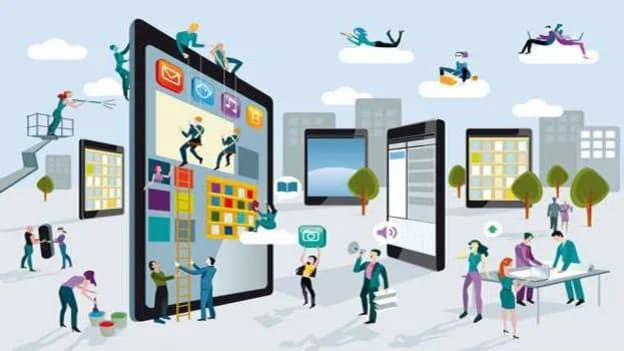How’s HR reconfiguring the post-pandemic workspace?

The pandemic has changed the way we work. From radically redesigned workplaces, expanded roles and responsibilities to a renewed focus on upskilling for a multigenerational workforce, and a greater emphasis on employee well-being, a lot has changed in the last couple of years for both white collars as well as shop floor workers. To support the change and sustain the organisation’s growth ambitions, the human resources function too underwent a strategic overhaul. For instance, HR had to develop adaptable behaviours in not just their teams but across the organisation by offering flexibility, relevant resources, and giving a sense of ownership in the workplace to support the post-pandemic revival.
Now that businesses are emphasising returning to the workplace, HR is focused on improving the culture and workplace experience. Here are five ways on how HR can seamlessly reconfigure the workplace:
3Fs: Freedom, Flexibility, and Fulfilment
Adopting an employee-first mindset will help companies survive and emerge stronger from disruptions. For this, the HR function needs to focus on 3Fs - fulfilment, freedom, and flexibility. These are closely interlinked and have a sizeable impact on an employee’s workplace experience. Embracing a hybrid workplace culture by allowing employees the freedom to work from any location and offering flexibility around working hours are key to increasing an employee’s satisfaction levels and reducing attrition. In addition, providing employees with the right platforms to manage pandemic-induced stress and well-being issues can directly weigh on their productivity levels.
Employees are the new ‘customers’
Employees are the new ‘customers’ and the employee experience has become an HR priority at nearly all organizations. Smart HR leaders are going the extra mile to connect with their ‘customers’ to drive higher productivity and engagement. They are creating an environment that allows people to get to know each other and even be vulnerable. With regular dialogue and scheduled interactions, HR is enabling organisations to understand, empathise with, and evaluate what their workforce needs and wants. Post-pandemic success and stability for companies will depend on treating employees as customers, having regular connections, and providing necessary support.
Human-centred approach
Adapting to the new working models will require new systems, processes, tools, and technologies. Organizations are building holistic digital workspace platforms to keep their workforce motivated, engaged, and productive. However, the need of the hour is for HR to take a human-centred approach to technology to not just boost productivity and collaboration but also prioritise care for colleagues. For instance, showing employees how new technologies will bring better results and improve their work experience including mental health and well-being, will engage employees and prevent the erosion of trust.
Learning and re-learning
Undoubtedly, the nature of work has changed for almost everyone in the past two years, raising essential questions about the future of the workplace and the workforce. Training and upskilling employees to new technologies and offering them relevant tools and courses has proven to be highly beneficial move. Irrespective of the industry, HR needs to focus on identifying learning tools and resources that enable the multigenerational workforce to find enjoyment in their work, gain industry expertise and develop and hone functional skills.
Reframing culture in a hybrid world
Employee needs and desires have changed a lot. The post-pandemic workplace holds a different set of expectations for employees who have gotten used to working remotely. Today, HR needs to focus on embedding culture across a hybrid workplace, accelerating different ways of engaging employees and helping them to grow. In fact, many companies are recognizing a growing need to create a head of remote work experience to guide work-from-home employees and provide greater leadership visibility to make workers feel more empowered.
In conclusion
The HR function has done exemplary work during the pandemic and as the economy resumes, we are confident that learnings from across the world will lead to better management of employee expectations and drive productivity. Meanwhile, by putting more emphasis on wellness, culture, learning and employee experience, HR can enable companies to remain focused on the current work and understand what the workplace will look like in the coming years. They need to equally focus on employee safety and adopt a culture that promotes dialogue and inclusive growth.
















